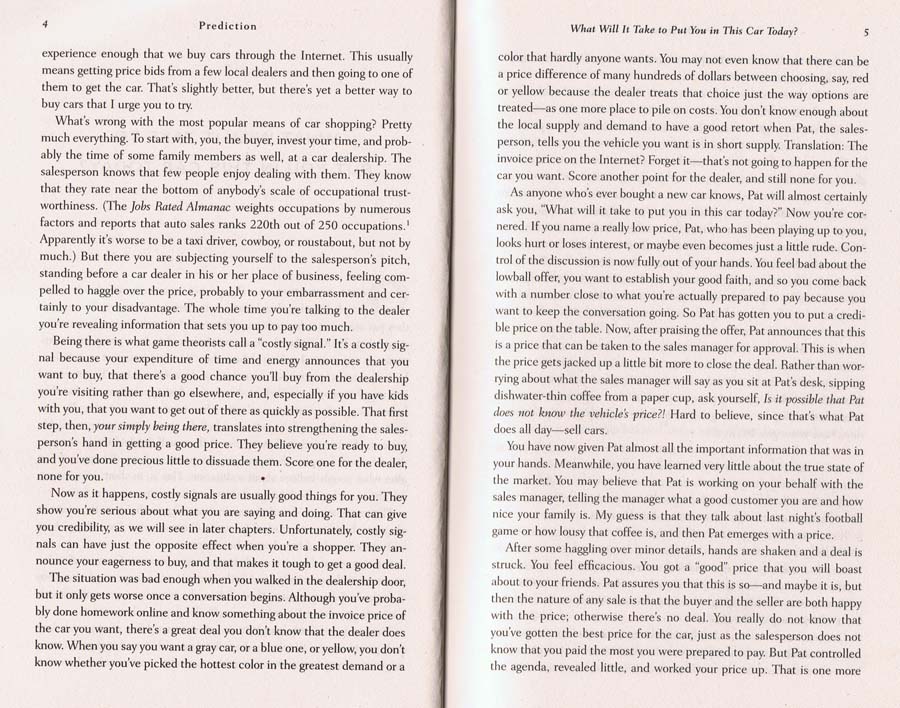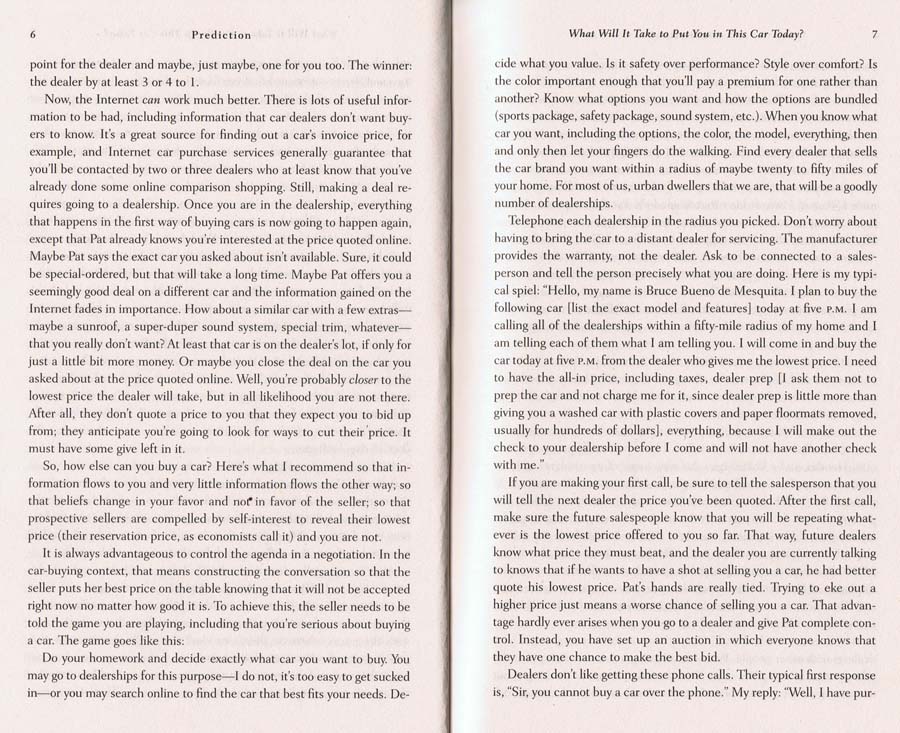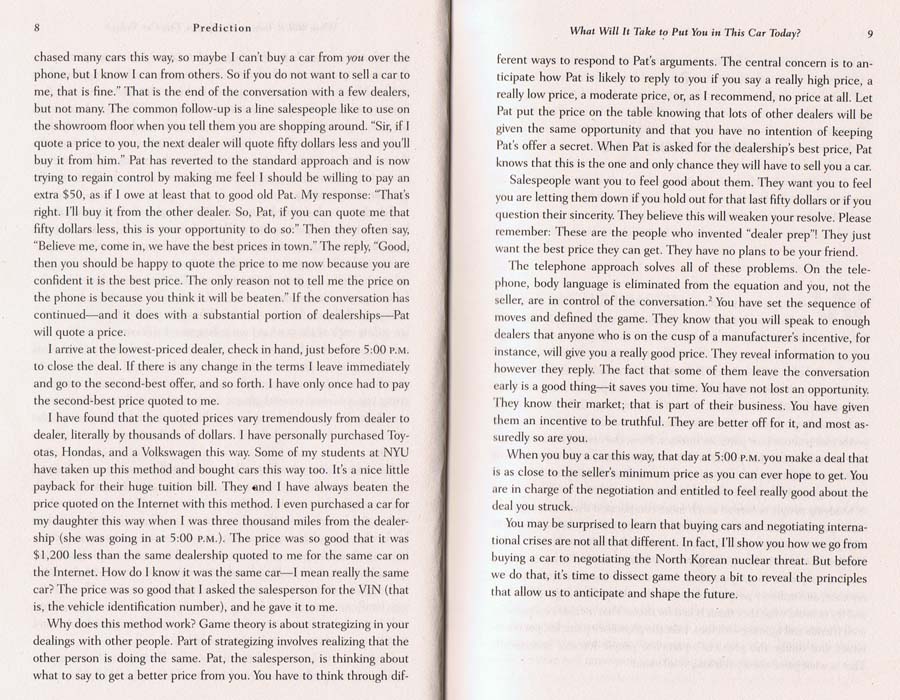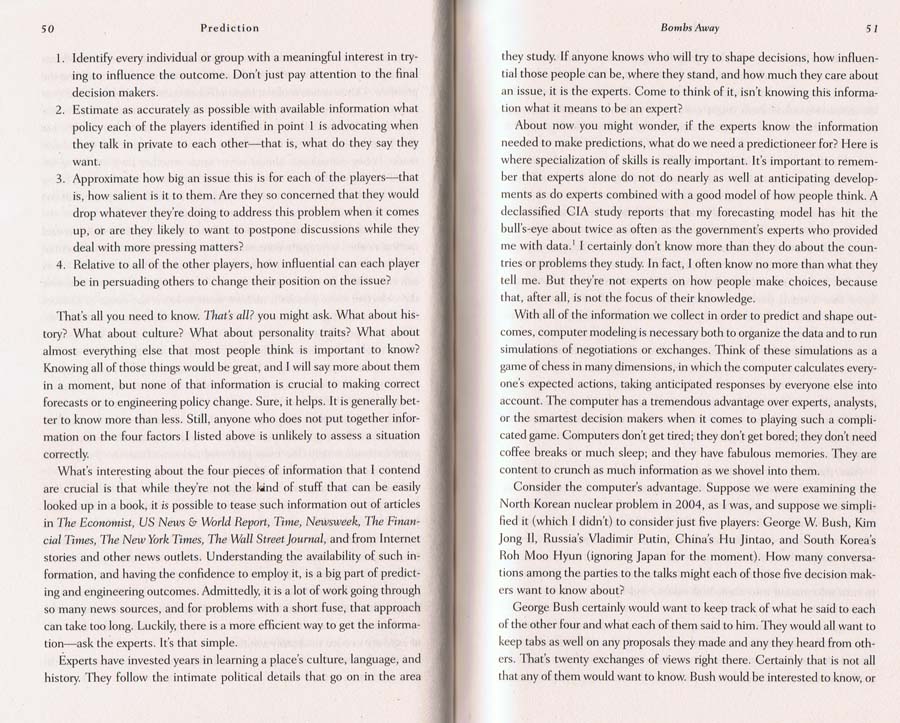Prediction
How To See and Shape The Future With Game TheoryBruce Bueno de Mesquita
King Leopold II of Belgium ruled 1865 to 1909. A progressive monarch who introduced universal male suffrage, compulsory primary school education and banned children under 12 being put t work. Large scale road and rail building ensured both full employment and encouraged commerce. But he also "owned" the Belgian Congo, where he got wealthy from ivory and rubber. There, he was an absolute monarch, responsible for genocidal atrocities, with perhaps 10 million people killed.
More books on Politics
Easy to blame racism or schizophrenic personality, but in fact all down to the situation. It all depends on how many people you have to keep happy.
Turns out that rulers who are really good at giving their subjects life liberty and happiness are all democratically elected and therefore face organized political competition. They are routinely thrown out after a short time in office. They have to do the right thing or they get tossed out even sooner.
But the kleptocratic leaders who hang around for 30 or 40 years before retiring to a tropical beach, stay in power by rewarding a small group of generals and senior officials. Because so few, they can afford to bribe them handsomely. And rather than threaten their big paydays, the elite will do whatever it takes to keep their boss in power.
The problem with this is that even when the boss wants to do good things for subjects, he can't, because that reduces the paydays for the boys he relies on to stay in power.
Author is a political science professor at NYU. " ....try to teach students to solve problems with logic and evidence. The idea is to wean them from knee-jerk conclusions based on gt feel, personal opinions, simple linear reasoning, partisan preferences or ideology."
To predict what people are going to do you first have to figure out (a) what they believe about situation, and (b) what they want to get out of it. And if you can predict those things, you can also predict what will happen if you alter what they believe about the situation.
Buying a new car



Game theory says that people are rational. Assume that they do what they believe is in their own best interest, whether that's getting as much money as they can or getting as many people to like them as they can. They may find out later that they made a bad choice, but in game-theory thinking we look at what they know, believe and value at the time they made the choice.
Mother Theresa din't give anonymously - in fact she went out of her way to make herself distinctive. Makes sense to sacrifice yourself in short term if you believe it will gain you an outsize reward in next life. But we now know that MT questioned her faith and belief in existence of God (he never spoke to her), but by then it was too late to do anything else outside the Church. So perhaps she found perfect way to get reward on Earth that she feared she may not get in heaven.
Standard account of how arms races cause war involves what is called the 'hand wave' - the analyst waves his hands in the air instead of providing the logical connection from argument to conclusion.
Goes like this: Country A increases arms; Country B feels threat so builds up its arms etc etc. Produces a massive over-capacity to kill and destroy. Eventually (hand wave) 'things spiral out of control and war starts'.
But you're basically arguing that when the costs of war get really big, war becomes more likely. Yet common sense and Stage 1 Economics teaches us that when cost goes up, we buy less. So why shd opposite apply to wars? Sure, wars are often preceded by arms buildups. But ignoring all the times when an arms buildup deterred fighting simply because the cost was so high. That was why no major Cold War crisis between Russia and US turned into a hot war.
The way rules are set has major implications. 2008 Democratic primaries allocated votes proportionally, and Obama won. If they had used the (then) Republican method of winner-takes-all, then Hilary Clinton would have won nomination (and would have beaten McCain).

Books by Title
Books by Author
Books by Topic